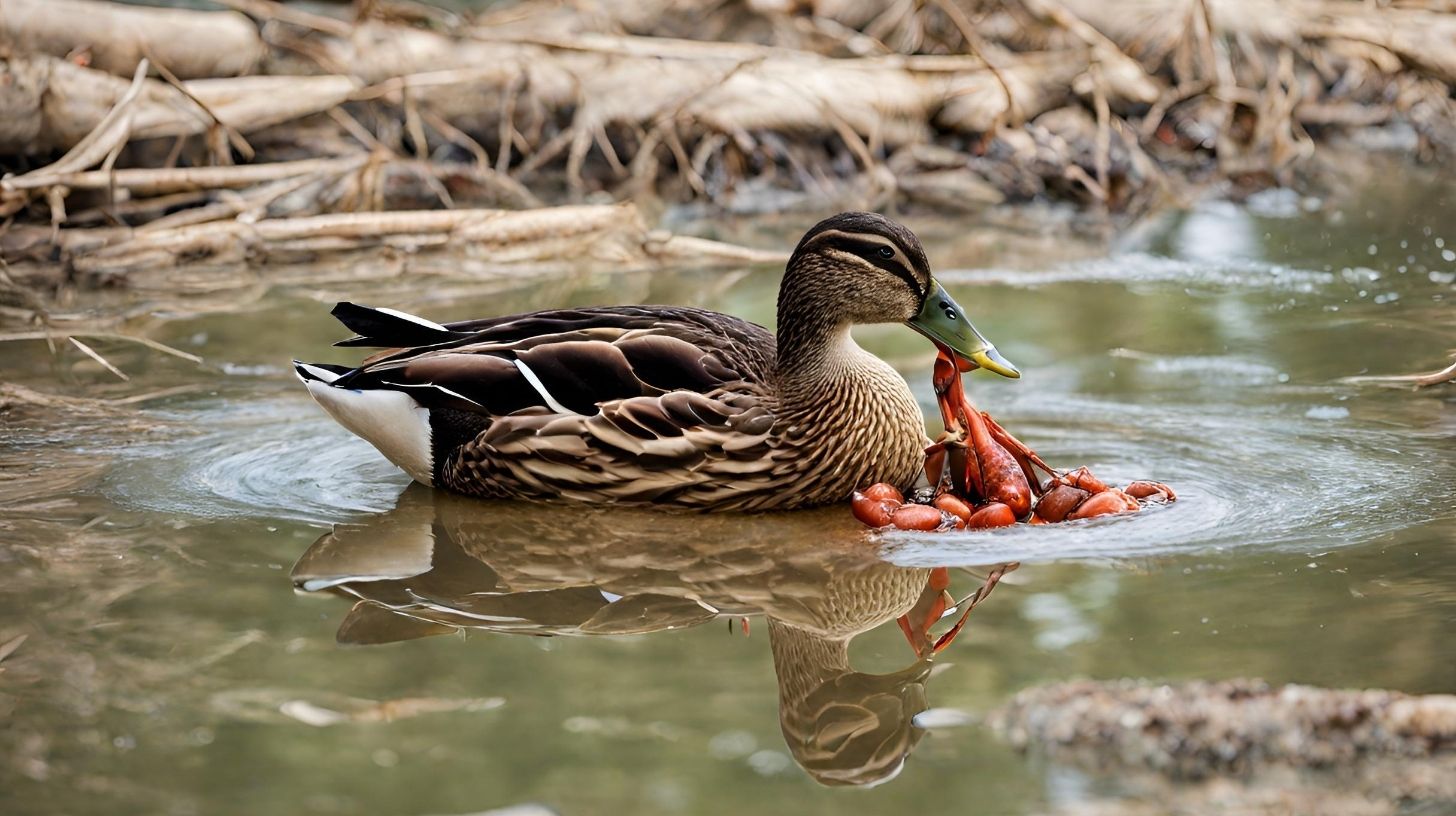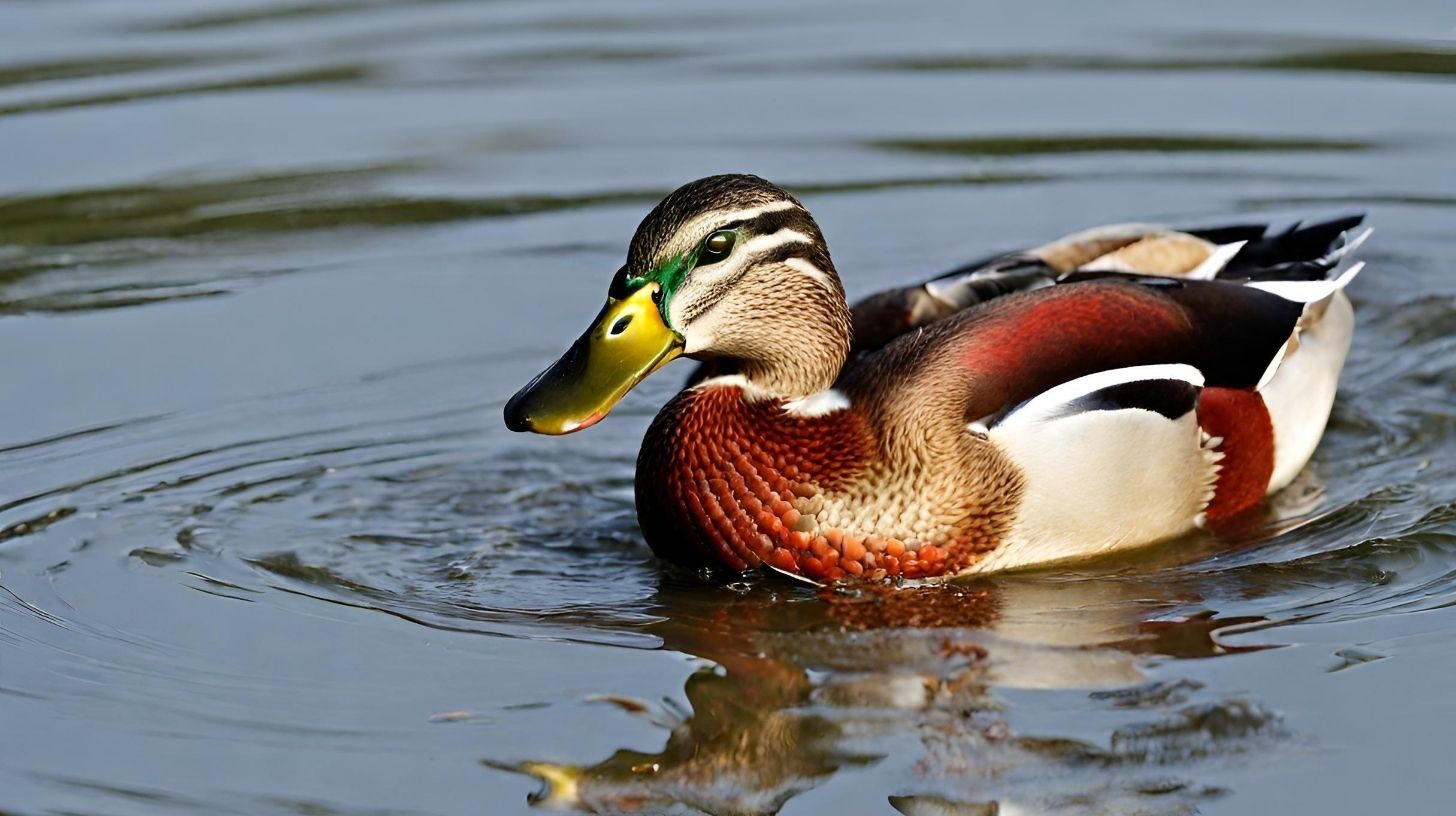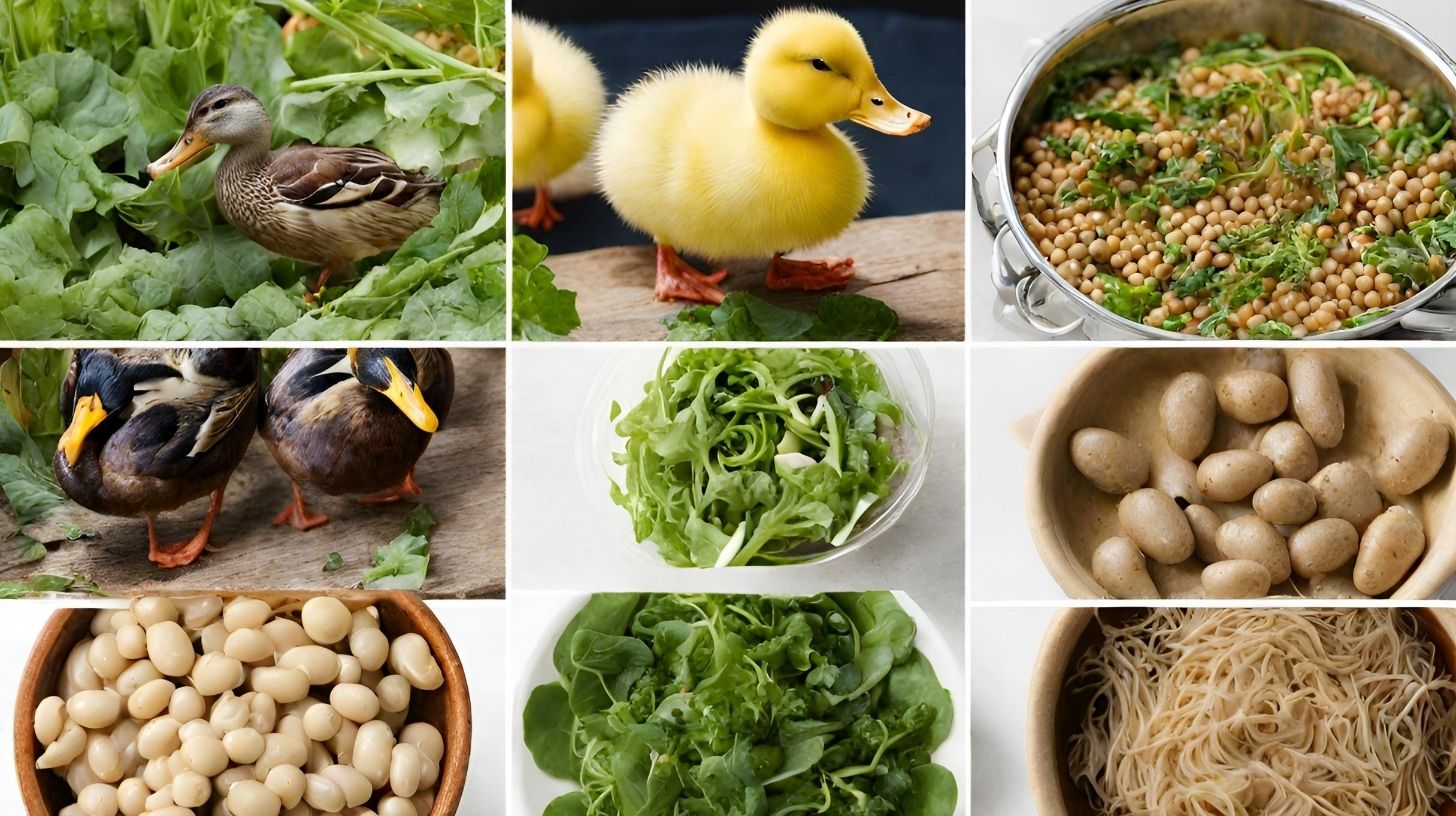Do Ducks Really Eat Crawfish? Nutrition And Safety Guide

Table of content:
Ducks are omnivores, meaning they eat both plant and animal matter. Their diet consists of aquatic plants, grasses, seeds, fruits, insects, small fish, snails, crustaceans like crawfish, and more. Crawfish are perfectly safe for ducks to eat and provide beneficial nutrition.
Key Takeaways:
- Ducks are omnivores and eat a varied diet including plants and animals.
- Crawfish provide protein, vitamins, minerals, and other nutrients ducks need.
- Ducks thrive on protein-rich animal foods like crawfish to meet energy needs.
- Both wild ducks and domestic ducks relish crawfish as a natural part of their foraging diet.
- Crawfish shells provide ducks with calcium for bone health.
- Ducks have evolved strong digestive systems to process whole crawfish.
Crawfish, also referred to as crayfish or crawdads, are freshwater crustaceans found natively in many of the ponds, streams, rivers, lakes and wetlands ducks inhabit. As opportunistic feeders are always on the hunt for nutritious food sources, ducks will readily consume these small shellfish as a protein, vitamin and mineral-rich food source.
 Are Crawfish Safe for Ducks to Eat?
Are Crawfish Safe for Ducks to Eat?
Crawfish are totally safe and healthy for ducks to eat. In fact, ducks seek out these nutritious crustaceans as part of their natural diet in the wild.
Both wild ducks and domestic ducks thrive when crawfish are available as a food source. Ducks have evolved a digestive system well equipped to make use of the nutrients inside the crawfish’s armored shell.
Ducks will swallow crawfish whole, shell and all. The crawfish are ground up using the duck’s muscular gizzard. Ducks also ingest small stones to further help break up food in their gizzard. This allows ducks to access the meat inside the crawfish as well as digest the shell to derive calcium and other minerals.
So feeding ducks crawfish can be an excellent way to provide balanced nutrition in their diet.
What Do Ducks Eat?
Ducks are omnivores, meaning they consume both plant and animal matter. Their diet in the wild consists of:
- Aquatic plants like algae, duckweed, water lilies
- Seeds and grains
- Fruits and berries
- Aquatic insects
- Worms
- Snails and slugs
- Fish
- Frogs
- Salamanders
- Crawfish/crayfish
- Prawns/shrimp
- Mollusks
Ducks have serrated bills evolved for foraging on land and in water to capture diverse plants and animals. Being omnivores provides ducks with nutritional flexibility.
The exact diet of ducks depends on habitat and seasonality of food sources. When available, ducks opportunistically feed on protein and vitamin-rich animal foods like insects, fish and crustaceans to meet their dietary needs.
 Why Do Ducks Eat Crawfish?
Why Do Ducks Eat Crawfish?
Ducks eat crawfish for the same reason they eat worms, snails, insects, shrimp and other invertebrates – as a vital source of proteins, vitamins and minerals.
Crawfish nutrition consists of:
- Protein – Provides amino acids for growth and repair.
- Fat – Provides concentrated energy.
- Vitamins – Such as B vitamins for metabolism.
- Minerals – Such as calcium, phosphorus and selenium.
- Fiber
For ducks living on a pond or river where crawfish thrive, they can be a dietary staple and primary protein source.
Crawfish offers an abundance of easy-to-digest animal protein to fuel ducks’ high energy needs and rapid growth. Adult ducks require protein for reproduction and egg-laying.
Ducks opportunistically feed on crawfish when available as a food source rich in the essential nutrition they seek.
Can Both Wild and Domestic Ducks Eat Crawfish?
Yes, both wild ducks and domestic ducks can eat crawfish safely and benefit nutritionally from their consumption.
In fact, various duck species are adapted to hunt and consume crawfish across different types of waterways and wetlands:
- Mallards – Dabble in shallow water to catch crawfish and other aquatic life
- Wood ducks – Dive to feed on crawfish and insects in swamps and bottoms
- Ruddy ducks – Dive and find crawfish in deeper waters
- Mergansers – Hunt for fish and crawfish in rivers and lakes
For wild ducks, crawfish provide a substantial source of nutrition to have opportunistically foraged.
For domestic ducks, providing supplemental crawfish can mimic their ancestral omnivorous diet. Both adult domestic ducks and ducklings thrive when provided crawfish in addition to grains and produce.
Do Crawfish Provide Calcium for Ducks?
Yes, crawfish shells are an excellent source of dietary calcium for ducks.
The exoskeletons of crawfish are rich in calcium carbonate. Eating the whole crawfish gives ducks access to these calcium-rich shells.
Calcium supports bone health and growth, eggshell strength, muscle and heart function. Like other birds, ducks need ample calcium for cellular activities and metabolic functions involving nerves and hormones.
If calcium is deficient in a duck’s diet, it can lead to issues like:
- Rickets
- Osteoporosis
- Soft or malformed eggshells
- Stunted growth
- Weak bones prone to fracture
The shells of crayfish and other crustaceans help provide a bioavailable calcium supplement, especially important for egg-laying ducks.
How Do Ducks Digest Whole Crawfish?
Ducks have evolved a digestive system capable of utilizing whole crawfish for nutrition. Ducks will swallow crawfish up to 3 inches long whole.
Key adaptations that allow ducks to digest crawfish shells and all include:
- Serrated beaks – For gripping, tearing and efficiently swallowing crawfish whole.
- Muscular gizzards – With the help of small stones swallowed, gizzards grind up food and shells.
- Potent enzymes – Ducks produce enzymes capable of extracting nutrients from shells.
- Short intestines – Food passes quickly through digestive tract within an hour.
Consuming whole crawfish provides ducks with full nutritional value. Ducks typically prefer live wiggling crawfish they can swallow immediately.
Interestingly, studies show ducks digest proteins in whole crawfish 10-15% more efficiently than processed feeds.
Overall, a duck’s digestive system has evolved to make nutritious use of whole crayfish and shells. Their gizzard does an efficient job grinding crawfish up to access the meat and minerals.
Feeding Ducks Crawfish for Optimal Nutrition
For those looking to feed ducks, providing live crawfish can offer enhanced nutrition modeled after wild ducks’ natural diet. Some tips:
- Source active, healthy crawfish from reputable aquatic suppliers.
- Hold crawfish temporarily in aerated water; feed within days of acquiring.
- Allow ducks to forage for crawfish in shallow water for exercise.
- Start with 1-2 crawfish per duck, gradually increasing ration as accepted.
- Feed crawfish in combination with greens, grains and bugs.
- Adjust amounts based on appetite, targeting 10-15% of diet from crawfish.
- Remove uneaten crawfish within 30 minutes to avoid spoilage.
When including crawfish as part of a balanced diet, be sure to feed appropriate amounts relative to ducks’ overall food intake. Observe your duck flock to ensure good health and condition.
Frequently Asked Questions
How often can ducks eat crawfish?
Healthy adult ducks can eat crawfish daily as 10-15% of their diet. Adjust amounts based on appetite and overall food intake.
Are crayfish better than fish for ducks?
Crayfish and small fish both provide beneficial animal nutrition for ducks. Variety is ideal, offering both high-protein foods when possible.
Can I feed ducks crawfish from the grocery store?
Yes, boiled crawfish tails or hulls from seafood markets can be fed safely, but raw freshwater crawfish are more nutritious.
Is it okay to feed chicken to ducks too?
Chicken provides valuable protein for ducks but lacks calcium from crawfish shells. Best to feed both chicken and crawfish varieties.
How often should I feed ducks?
Feed smaller amounts of food frequently, aiming for at least twice daily for optimal nutrition. Provide enough so all ducks can eat their fill.
Conclusion
In conclusion, ducks are well adapted to seek out and eat crawfish as a nutritious part of their omnivorous diet. Both wild ducks and domestic ducks can safely consume crawfish for valuable amino acids, vitamins, minerals, healthy fats and calcium.
Crawfish provide ducks with high-quality protein to fuel growth and activity. As opportunistic foragers, ducks will readily eat whole crawfish when available to get a nutritional boost. For those feeding ducks, supplementing with live crawfish can mimic their natural diet.
Welcome. I’m Adreena Shanum, the proud owner of this website, and I am incredibly passionate about animals, especially poultry. I founded adreenapets.com as a labor of love, stemming from my desire to share my knowledge and experiences with poultry enthusiasts worldwide.




